School is more than just a building.
Our Thriving Schools Program is a community-centered initiative led by Building Tomorrow Fellows and teams of Community Education Volunteers aimed at providing primary-age students with access to a thriving school that provides an inclusive, transformative education. A thriving school is one which is supported by the community, effectively managed by school leadership, accessible by all children, and committed to producing positive student outcomes.
The Program Our ImpactAn education crisis has silently emerged in Uganda.
More than 700,000 primary school-age children remain out-of-school throughout the country, and across sub-Saharan Africa, that number jumps to 30.1 million1. In Uganda, only 35% of children who enroll will complete a full cycle of primary school2. Still others will make it through primary school, but without learning the basics - 61% of Ugandan students in 3rd-7th grade couldn’t read a simple story and 48% couldn’t perform basic math operations3.
The Thriving Schools Program
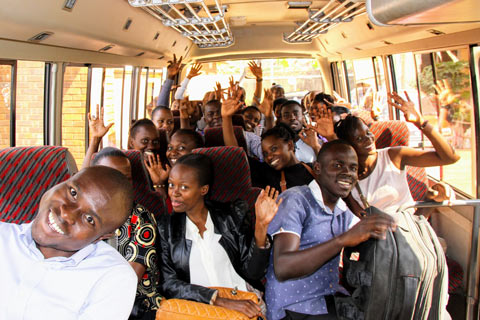
1. Through the Building Tomorrow Fellowship, we recruit and train young Ugandan university graduates who each serve in four rural schools for a two-year term, aiming to transform schools and communities.
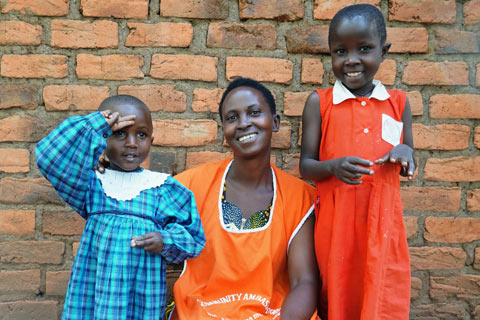
2. Fellows train local leaders as Community Education Volunteers (CEVs) and work with them to enroll out-of-school children and galvanize community support for the school.
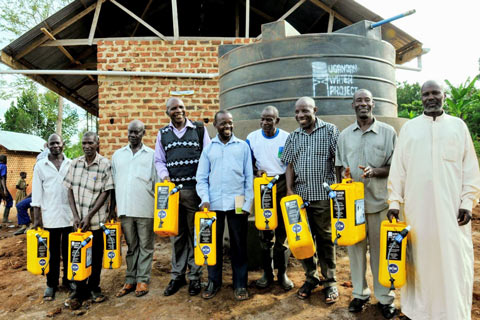
3. Fellows equip school leadership with training and partner with them in creating School Development Plans to outline priorities for improvement.
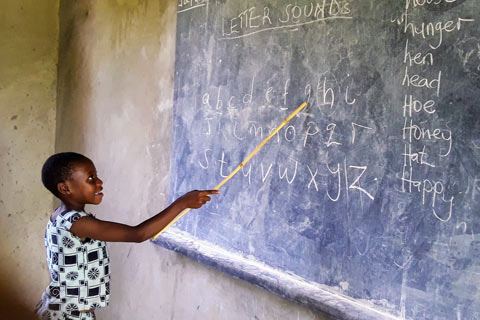
4. CEVs and teachers jointly lead efforts to improve student outcomes through Roots to Rise, a foundational learning initiative which involves grouping students according to their learning level and teaching basic literacy and numeracy skills.
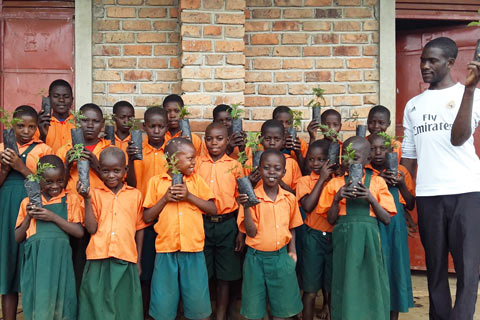
5. Fellows work with CEVs to carry out extracurricular activities that promote students’ understanding of vocational, agricultural, and life skills.
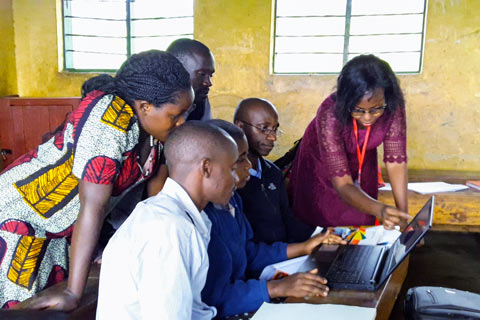
6. Each Fellow hones their leadership skills through the development of a social enterprise leveraging their passions and interests while meeting the unique needs of the community.
Our Impact
The Thriving Schools Program has experienced significant success and subsequent growth since its inception in 2015 (then simply named the Fellows Program).
250
Fellows deployed
1000+
Schools supported
3,500+
Community Education Volunteers engaged
39,376
Formerly out-of-school children re-enrolled by Fellows & CEVs
*All numbers aggregated since the start of the program in 2015 and current as of December 2021.
Building Tomorrow Fellows
Our Fellows are integral to developing schools that thrive long past Building Tomorrow’s involvement. Fellows are selected from the top university graduates nationwide and for two years, they serve four rural schools, embedding themselves in the community.
Learn more about Fellows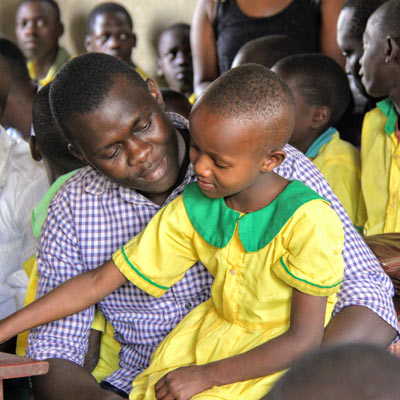
Latest Stories from the Field
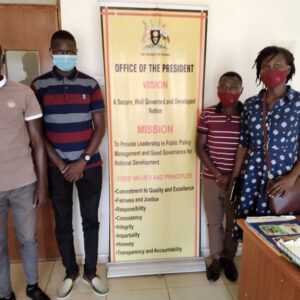
Keeping Communities Safe
July 26, 2021
How five Building Tomorrow Fellows rose to the challenge and became public health advocates. In late June 2021, Uganda began…
Read more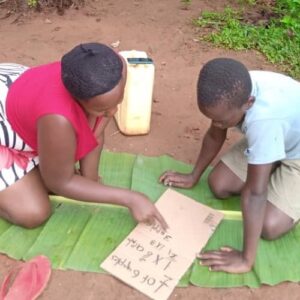
#1 Roots to Rise fans: Alvin & his parents!
November 16, 2020
This is Alvin, a 4th grader at Building Tomorrow Primary School of Buyanja, located in the Lyantonde district of Central…
Read more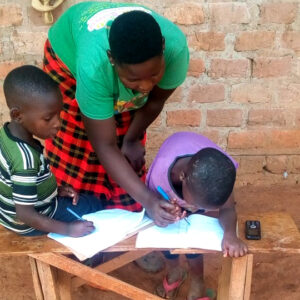
Akim and Fred are Roots to Rise readers!
November 11, 2020
Meet Akim and Fred! Before the COVID-19 pandemic shuttered schools across Uganda, 11-year-old Akim and nine-year-old Fred were enrolled as…
Read morePartner With Us
The belief that we achieve more together than we could alone is at the heart of our work. From our beginnings as a network of chapters at U.S. universities to our 5 year, $12 million Educate 51K initiative with Educate A Child, we have a history of partnering to grow our impact. If our efforts align with your focus areas, let’s build together.
View Partnerships Overview Contact UsSources describing the education crisis in Uganda.
1 UNESCO Institute for Statistics and the Education for All Global Monitoring Report, 2015
2 UNESCO Institute for Statistics, 2014
3 Uwezo Uganda Sixth Learning Assessment Report, 2016
